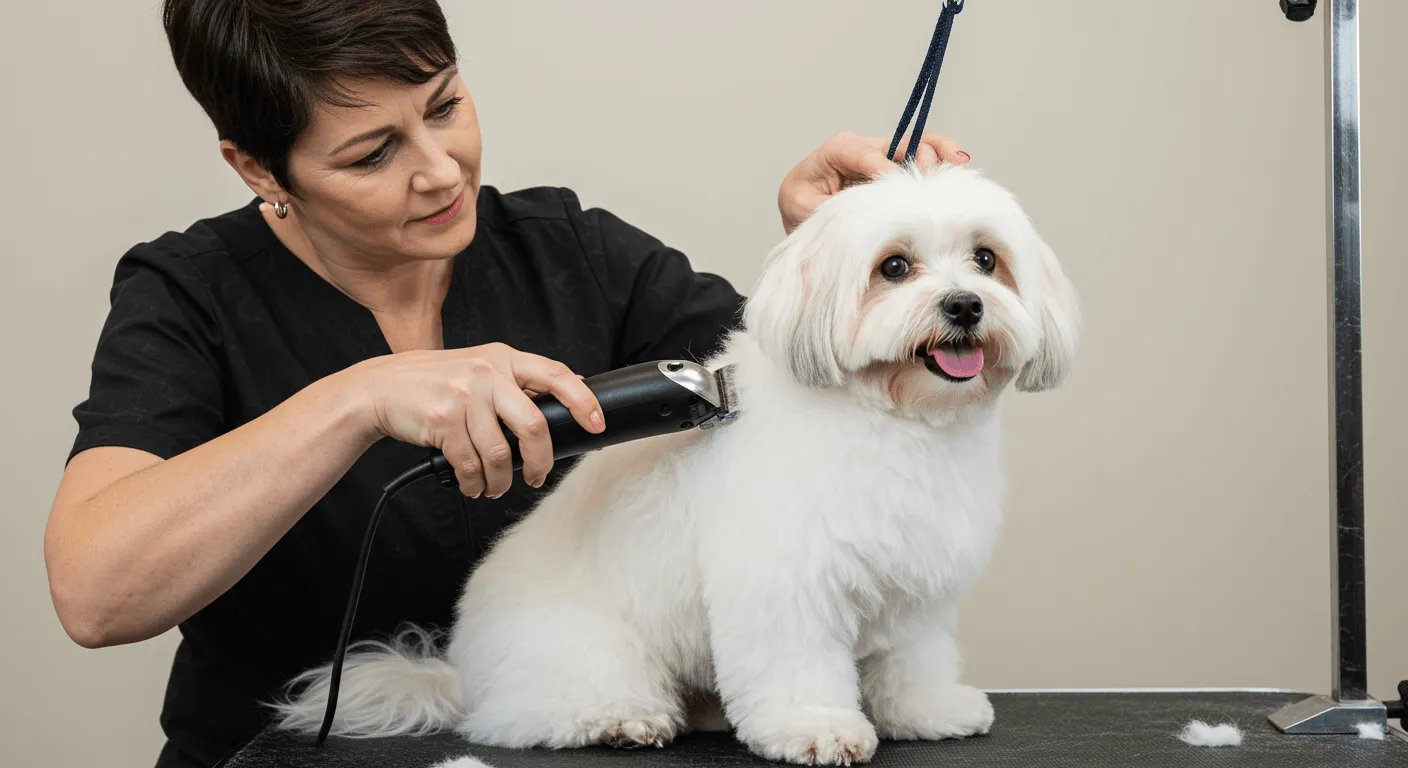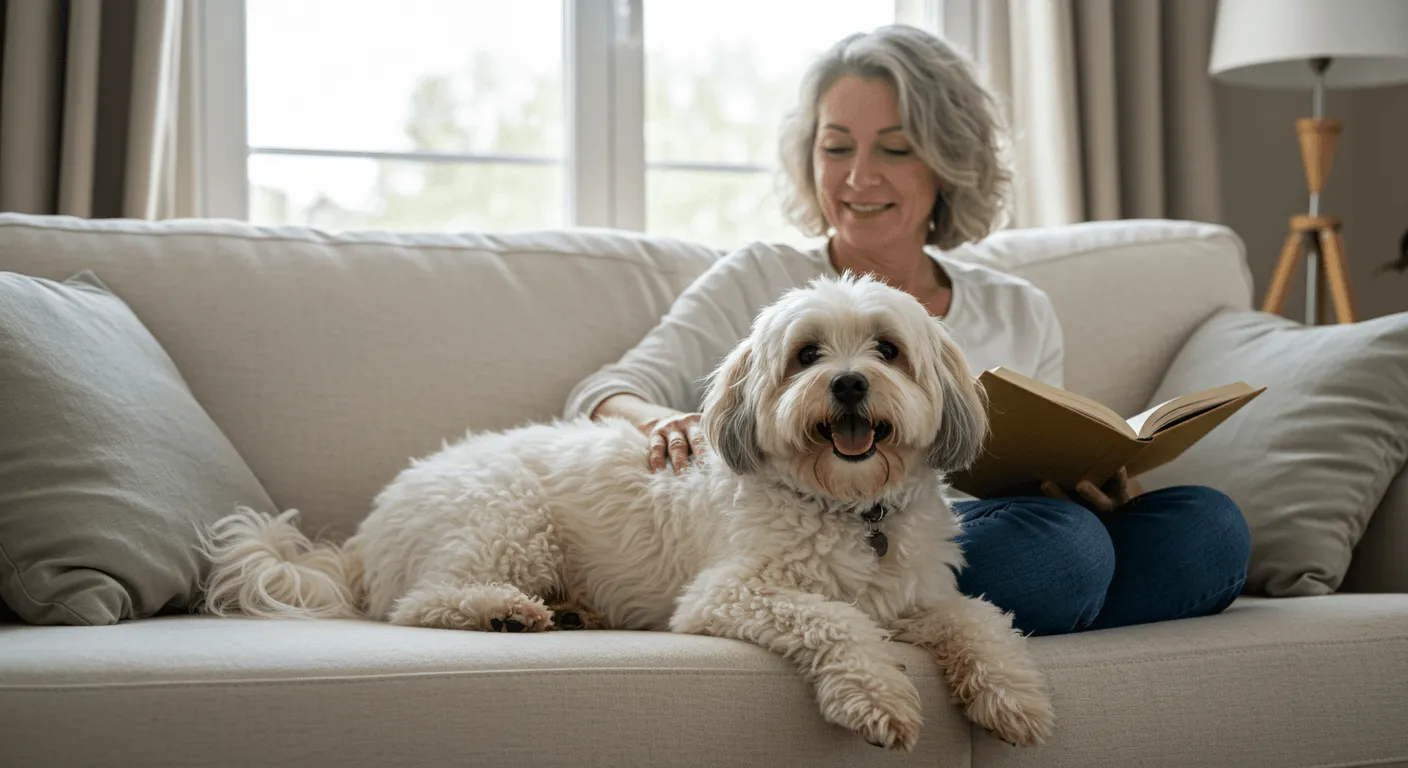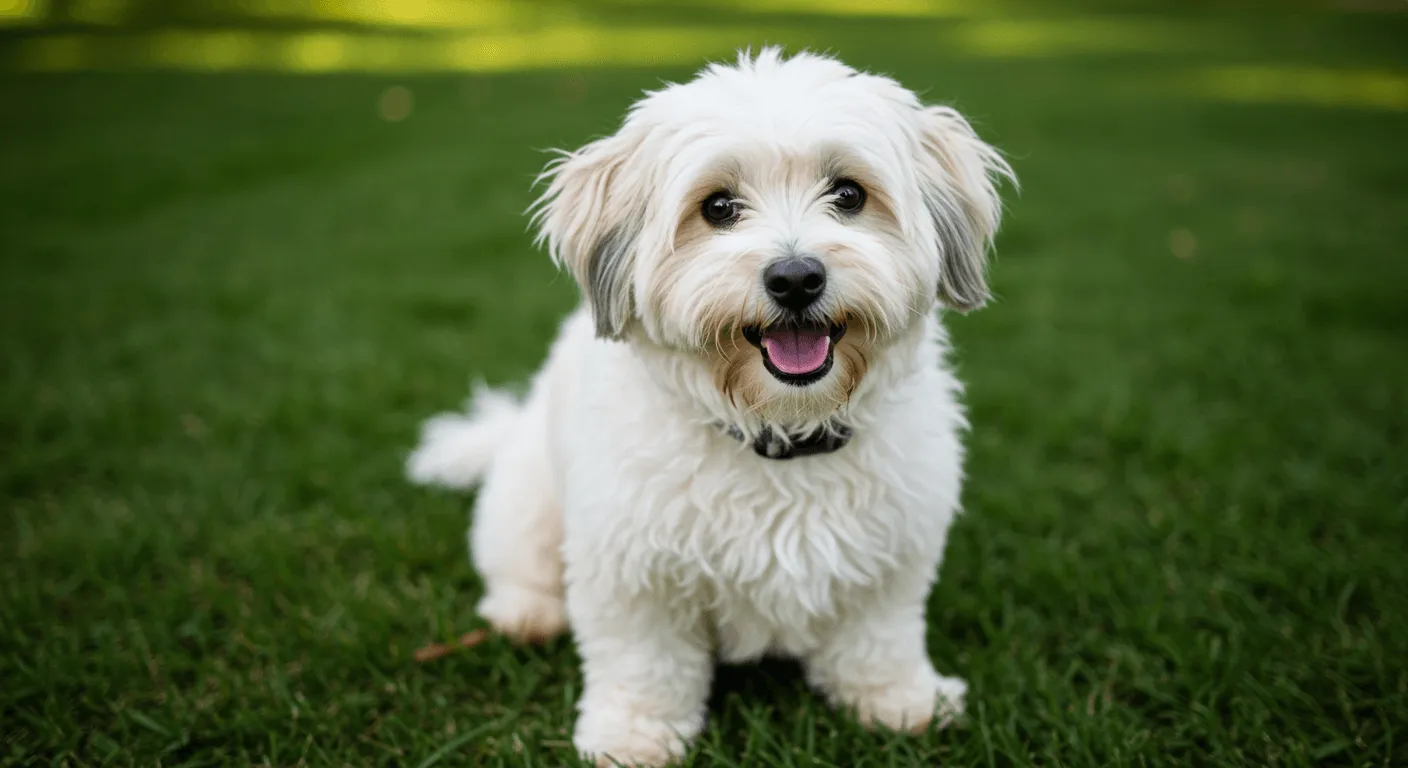A small, cloud-like dog with a big personality, the Coton De Tulear is known for its expressive face, friendly nature, and luxurious long coat. Originally hailing from Madagascar, this breed was once a companion to nobility—and today, the Coton continues to earn its role as a beloved companion thanks to its loyal, playful, and affectionate demeanor.
But is a Coton De Tulear the right dog for you?
Choosing the right dog breed is more than falling for an adorable face or fluffy white fur. It's about understanding how the dog’s personality, energy level, grooming requirements, and social tendencies fit into your daily routine and long-term plans. Keep reading to explore what life with a Coton is like and whether this breed is truly a fit for your lifestyle.
Temperament and Personality
Cotons are often described as “clowns of the dog world” thanks to their playful, affectionate, and even goofy attitudes. If you're looking for a dog who will follow you from room to room and enjoy every moment by your side, a Coton may just win your heart.
Typical Behavioral Traits
- Affectionate and loving: Coton De Tulears are companion dogs through and through. They thrive on close contact with their humans.
- Playful energy: They enjoy play but are not overly rambunctious. Interactive games and short play sessions are often ideal.
- Highly social: Cotons generally get along well with strangers and are rarely aggressive.
Energy Levels and Social Tendencies
Despite their laid-back lapdog appearance, Cotons are moderately active. They enjoy walks, light play, and mental stimulation throughout the day. They're also known for their Velcro dog tendencies—meaning they want to be wherever you are at all times. A Coton that's left alone for long stretches may develop separation anxiety.
Pros and Cons for Different People
When deciding whether to bring a Coton De Tulear into your life, it's important to consider your household dynamics, lifestyle, and time commitment.
Families with Children
Pros:
- Cotons are gentle, tolerant, and affectionate with children.
- They're sturdy enough to play yet small enough to avoid knocking little kids over.
Cons:
- Young children must be taught to treat the dog gently to avoid injury to the small body of the Coton.
Single Individuals
Pros:
- These dogs are the perfect companions for singles seeking a loyal best friend.
- Cotons form deep bonds with their person and provide companionship without being overbearing.
Cons:
- They do not tolerate being alone for long hours. Single pet owners with demanding jobs may need to arrange for pet sitters or doggy daycare.
Elderly Owners
Pros:
- Their modest exercise needs and small size make Cotons great for seniors.
- Responsive and affectionate, they are excellent emotional support animals.
Cons:
- Consistent grooming and early training are necessary, which may be physically difficult for some.
Active Lifestyles vs. Sedentary Lifestyles
- Cotons can fit into both moderately active and quieter households.
- While not high-energy like some sporting breeds, they do require daily walks and play to remain balanced and happy.
Suitability Factors
Wondering how Cotons interact with kids, pets, or different home environments? Here’s a breakdown:
Are Coton De Tulears Good with Kids?
Yes, Cotons are great with children—especially if the children are respectful and gentle. Their playful nature makes them entertaining companions, and they are rarely snappy.
Are Coton De Tulears Good with Other Dogs?
Generally, yes. Cotons are friendly and sociable with other pups. Early socialization helps ensure they exhibit good canine manners.
Are Coton De Tulears Good with Cats?
Many Cotons can live peacefully with cats, particularly if the two are introduced while young. Their soft temperament usually avoids conflict.
Are Coton De Tulears Good Guard Dogs?
No, Cotons are not known for being protective or territorial. While they may bark to alert you of a new visitor, they are more likely to greet strangers enthusiastically than ward them off.
Are Coton De Tulears Good for Apartments?
Absolutely. Their small size and manageable energy level make them ideal apartment dogs. They are also relatively quiet compared to other small breeds, though they can develop nuisance barking if bored or left alone too often.
Do Coton De Tulears Need a Yard?
A yard is not required, but it’s a nice bonus. Daily walks and indoor play will suffice for their exercise needs, but a fenced yard allows for extra safe exploration.
Is a Coton De Tulear Good for First-Time Owners?
Yes! The Coton's gentle disposition, intelligence, and eagerness to please make them an excellent choice for first-time dog owners—provided you're ready for the grooming responsibilities.
Care Requirements
Don’t be fooled by the soft, cuddly appearance. Cotons may be charmingly low-key but they do come with specific care demands—especially when it comes to grooming.
Exercise Needs
Coton De Tulears need about 30–45 minutes of activity per day. This can include:
- Leisurely walks around the neighborhood
- Indoor games of fetch or puzzle toys
- Occasional playdates with other friendly dogs
They enjoy activity but are not hyperactive, making them a good fit for low- to moderately active families.
Grooming Requirements
This is where the most work comes in. Cotons have a long, cottony coat that can mat quickly without regular care.
- Brushing: Daily brushing is necessary to prevent tangles and mats.
- Bathing: They should be bathed every 2–3 weeks using a gentle dog shampoo.
- Trimming: Regular eye cleaning and coat trimming help maintain hygiene and good vision.
- Shedding and Drooling: Cotons are known for being a non-shedding breed, and they barely drool—a bonus for cleanliness-conscious owners.
Professional grooming every month or so will help keep their coat in top shape, but it does add to the overall cost and commitment.

Training Considerations
Cotons are intelligent and eager to please, which makes them relatively easy to train. However, they can also be a bit stubborn if not kept engaged.
- Positive reinforcement is critical: Harsh corrections are counterproductive for this sensitive breed.
- Socialization: Introduce the puppy to new sights, sounds, people, and pets early on for a well-rounded temperament.
- Barking Tendency: Cotons may develop a habit of barking when bored or lonely. Early boundary setting helps.
Can Coton De Tulears Live Outside?
No. Cotons are companion dogs meant to live indoors. Leaving them outside alone is not only emotionally distressing for the breed but also risky due to their small stature and vulnerable coat.
Can Coton De Tulears Be Left Alone?
Only for short periods. These dogs prefer constant companionship. Leaving a Coton alone for extended periods can lead to excessive barking, destructive behavior, or separation anxiety.
Are Coton De Tulears High Maintenance?
Yes, particularly in terms of grooming. While they’re easygoing by nature and not demanding in exercise, the grooming routine required to maintain their coat is extensive. This is not a “low-effort” breed when it comes to weekly care.
Health and Lifespan
Common Health Issues
While overall a hardy breed, the Coton does have some hereditary conditions to be aware of:
- Patellar luxation (dislocation of the kneecap)
- Hip dysplasia
- Eye disorders, such as progressive retinal atrophy and cataracts
- Liver shunts or congenital portosystemic shunts on rare occasions
Working with a reputable breeder who tests breeding dogs for these and other conditions is essential.
Coton De Tulear Life Expectancy
You’ll be pleased to hear that Cotons have a long lifespan. The average is 14 to 16 years, with many living even longer in healthy environments.
Are Coton De Tulears Hypoallergenic?
While no dog is completely hypoallergenic, Cotons are considered a better choice for allergy sufferers. They produce less dander, don't shed significantly, and are low droolers. However, individuals with allergies should spend time with the breed before committing.
Cost and Legal Considerations
How Much Does a Coton De Tulear Cost?
Coton De Tulears are not inexpensive. The cost can range from $2,000 to $4,000 for a puppy from a reputable breeder. Factors influencing price include lineage, health screenings, and whether the dog is show-quality.
Ongoing monthly costs include:
- Grooming appointments
- High-quality dog food
- Routine veterinary care
- Pet insurance (recommended)
Adopting from a rescue organization may reduce the upfront cost, but Cotons are relatively rare in shelters.
Coton De Tulear Legal Restrictions
There are currently no major breed-specific legislations or bans on Cotons in the United States or other western countries. However, always check with your local housing or homeowners' association (HOA) if breed restrictions apply, especially in rental properties or condos.

The Coton De Tulear is a small dog with a big heart—an affectionate, intelligent, and charming companion suited for many types of households. Whether you're a senior looking for a gentle lapdog, a family seeking a kid-friendly companion, or a first-time dog owner searching for a manageable yet rewarding breed, the Coton has a lot to offer.
However, owning a Coton De Tulear isn’t without its challenges. While they’re relatively low-maintenance when it comes to exercise, their grooming needs are demanding and consistent companionship is a must. They're not suited for people who are away from home for long hours or those looking for a completely hands-off pet.
If you're looking for a loyal, cheerful, and hypoallergenic breed—and you're ready to commit to the coat care and social needs—a Coton De Tulear might be the perfect addition to your life. With proper care, training, and love, these "Royal Dogs of Madagascar" will reward you with years of joyful companionship.

